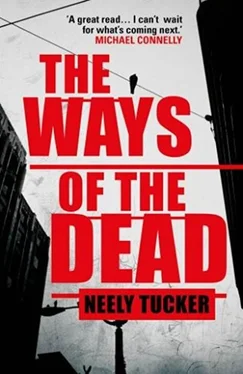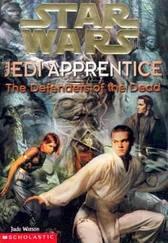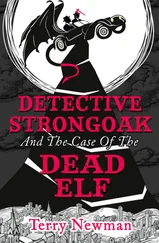Jason leaned back in his chair and folded his arms across his chest. He swiveled back and forth for a moment.
“I don’t. I don’t think she overdosed. If you’re interested in unfounded speculation, I think it’s highly likely someone raped her and killed her and hid the body. She was young, gorgeous, known to take liberties with portraying herself as a sex object, and was apparently known to do drugs. So you take anyone with that background and stuff them in a hole in the basement of an abandoned house in a crappy neighborhood, my first instinct is that she ran into Ted fucking Bundy. But I don’t know that, and there’s nothing in the autopsy to point to it as a forensic standard of proof.”
“What if you’d examined the body the day after she was buried?”
“Fibers, signs of bruises, cuts, bleeding-all that would have been available. Whoever buried her, or stuffed her beneath that trash pile or whatever, did a good job. Well, I should say buried her the first time. She’s being reburied today.”
Sully sat up. The funeral-pathos, symbols, a lead anecdote to the story. This he needed, what with the heat R.J. was putting on him. He needed something he didn’t have, which was family, which was emotion. You want emotion, you go to a funeral.
“Today? The funeral’s today ?”
“Funeral home claimed the body as soon as we were finished. And I don’t think this is so much a funeral as a burial.”
“They-they just found her yesterday morning,” Sully said.
Jason shrugged. “Jews, we bury them quick. She’s not a member of the tribe, but maybe there was a family rush.”
Family. Her sister would be there, the one who’d put out the flyer, who had called him.
“Got the name of the funeral home, Jason? For a carrion-feeding media vulture?”
The rain started falling.
It had started slowly, before he got to the cemetery, a cold and desultory spattering. It fogged the visor; it dripped off the back of the helmet and landed on his neck and coursed down his back. He could feel the tires spinning the water up from the road onto his thighs.
By the time he reached Everlasting Cemetery-it was a good four miles outside the Beltway, way the hell out New Hampshire Ave., the northern edge of the burbs-it had picked up to a steady downfall and he was soaked to the bone. The graveyard was off to his right, at the crest of a long, slow hill. He downshifted into first, kept the bike as quiet as possible, eased toward the back of the place, and there it was. Two cars and a hearse pulled to a stop near a green awning, a hole yawning beneath. The casket, white, was raised on the bier.
A woman in a black dress and a stylish black hat and two men in suits were getting out of the cars. They were all beneath umbrellas. Sully pulled to the roadside and switched off the engine. He pulled his feet up onto the pegs and folded his hands across the gas tank.
The woman and the two men in suits went beneath the green awning. There were only the three of them. Until he saw one of the men produce a Bible, open it, and apparently begin to read, he didn’t realize the dynamic. There was a pastor and there was a cemetery official and there was Noel’s sister and there was no one else.
“Christ almighty,” he said. It was too goddamn sad to look at.
They all stood beneath the awning for a while. Then the woman and one of the men sat in the plastic lawn chairs the cemetery had provided. The other man in the suit, who did not sit, approached the casket and apparently pressed or pulled something. The casket slowly lowered into the ground, disappearing into the red dirt. The woman dropped long-stemmed roses into the hole after it. The pastor rose and held both of her hands, facing her. They prayed for several minutes. Then their hands released. The woman sat down again. The two men remained standing.
After a while, the woman stood. The trio stepped out from under the awning and raised their umbrellas and started back toward the road and their cars.
Sully took a deep breath, cursed, and cranked the bike. He rolled downhill slowly, until he was several yards behind the last car, and stopped the bike and killed the engine. Dismounting, he took off his gloves and then his helmet and put the gloves inside the helmet and then set it down on the roadway. He unzipped his jacket and walked forward and pulled a hand back over his hair, brushing it out of his face. The rain was coming down harder now. He hated himself for being here, for intruding in this way. He made eye contact with the men first, giving them a slight nod, and then he looked at the woman in the hat.
That it was Noel Pittman’s sister was beyond question. She was tall and had the same honey-brown skin. She had high cheekbones and straightened hair and deep brown eyes. She was looking at him.
“Pardon me, everyone,” he said, taking them all in with a glance, but then looking back at her. “Ma’am? My name is Sully Carter. I’m a reporter. I’ve been trying to reach Noel Pittman’s sister. If that’s you, Ms. Bradford, I apologize for just showing up, but I believe we exchanged phone messages.”
The trio stopped, the men looking at him and then, almost at the same time, back at the woman. She regarded him blankly. One of the men started walking toward him, a serious expression crossing his face. His eyes stayed on Sully but then his focal point shifted, a small tic, the scars, always the scars.
Sully did not back up. He returned his gaze to the woman.
“I recently called the number on a flier about Noel Pittman’s disappearance. A woman called back to my newspaper, but there was some confusion, and she wound up leaving a message with a different reporter. There was a number and I called back but didn’t get an answer. I left a message. Again, if that was you, Ms. Bradford, I would like-”
The man in the dark blue suit stepped directly in front of him, no more than a foot from his nose, breaking his eye contact with the woman. He had a good seventy-five pounds and two inches on Sully; the man had girth. “This is a private service,” he said in a hushed tone. “You’re going to need to get out.”
“Cemetery gates were open, and I’m not talking to you, mister,” Sully whispered back, meeting his gaze. “If the lady doesn’t want to-”
“What does he want, Mr. Robinson?” the woman called out. She was beneath her umbrella, and she had stopped walking. The man did not take his eyes off Sully, but moved his head slightly to the right. “He says he’s a reporter. He says he called you.”
She was still standing in the grass of the cemetery, not yet on the roadway. Her heels were sinking in the mud. She looked down at her feet, then at the pastor, and then back at Sully and Mr. Robinson.
“You the one who wrote the story in today’s paper?” she said. “About how she was found? Serial killer and all that?”
“I don’t think I said-well, yes. Yes, ma’am. I wrote most of that story.”
The pastor took her elbow and helped her onto the roadway. The rain fell harder. She walked over to him, beneath her umbrella, and looked up into his eyes. Her eyes dilated slightly, he noticed, the black expanding, the brown iris turning into a thin band, and he was about to register the depth of them when she spat into his face. He said nothing, only blinked the phlegm out of his eyes. He did not wipe his face. She glared, a foot away, and then she turned and started walking back to the limousine.
Mr. Robinson reached out with his right hand, formed a point with two fingers and, smiling, tapped Sully twice on the chest. His face was a smirk, a mixture of menace and contempt, and then he turned and left.
The light changed, a couple of cars passed, and he turned left onto Princeton Place. He toyed with parking in the alley behind Doyle’s, but went up a couple of houses, parked between two cars, lifted his helmet from his head, and walked back, his feet heavy on the pavement.
Читать дальше












